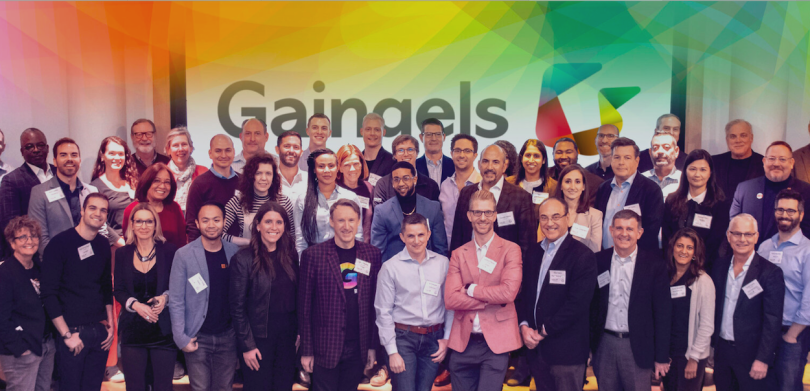
In 2001, Lorenzo Thione moved from Italy to Austin, Texas, to attend graduate school. Shortly after, the Twin Towers fell, and he decided to come out of the closet.
Since then, he has gone on to become a serial entrepreneur at the intersection of the tech, art and commerce sectors, and always with an eye toward his identity as an LGBTQ+ person.
He spent years as an investor, board member and advisor to many successful companies and co-founded a couple as well, including Powerset (which was sold to Microsoft in 2008) and StartOut, the nation’s first entrepreneurial network for LGBTQ+ people. Ten years later, the organization offers a variety of networking, educational, mentorship and investment opportunities to thousands of queer entrepreneurs, and even held its sixth annual hackathon this year.
Now, Thione is supporting this community from the other side of the aisle as a managing director of Gaingels, an NYC-based community network and investing syndicate for LGBTQ+ people and their allies.
In short, Gaingels helps foster diversity and equity in the startup ecosystem by paying attention to where venture capital is coming from and who is writing the checks.
“The reality is that, as we well know, the venture ecosystem was and still is dominated largely by not only straight, white men, but also by a group of people that is predominantly coming from very enclosed financial ecosystems,” Thione said. “The idea [with Gaingels] is to help create a new class of educated investors that would get access to opportunities that were, up until that time, simply not open to them.”
Gaingels does this by co-investing with top VC firms in companies with LGBTQ+ founders and C-suite leaders. It also invests in growth stage companies where there may not be any LGBTQ leadership, and places members of its own network of LGBTQ+ investors in C-suite positions at those companies. The organization’s investor network has more than 750 people, including 150 women and more than 100 members of color, according to the organization.
“How to bring diversity not just at the team level, but at the C-suite level, at the board level, at the investment and check-writer level — that has always been the mission, and is the mission of Gaingels,” Thione said. “Looking at private companies’ boards — which are often established early through the founder’s network and people that they know — it is important to give those companies an opportunity to look outside the four walls of their garden, so to speak, and be able to evaluate more diverse board leaders as well.”
Gaingels has worked with a number of well-known companies including MasterClass, Epic Games and Chime. To date, the organization has invested nearly $100 million in almost 160 companies since 2016, making it the second largest venture syndicate group by total volume of dollars invested, according to Thione.
Most of these investments have happened in just the last three years. In 2020 alone, Gaingels has invested nearly $75 million, and Thione anticipates it will reach $100 million by year’s end — a reflection of a growing awareness of the importance of diversity in the venture capital space.
Looking ahead, Gaingels also hopes to help the LGBTQ+ entrepreneurs of tomorrow succeed with its scholarship program. Launched last year with the help of the California Community Foundation, the program helps need-based LGBTQ+ students afford college with a $5,000 scholarship. Recipients are also paired with at least one mentor and are promised a summer internship and possible post-graduate opportunities.
For Thione, the goal of this scholarship and Gaingels in general is to make the startup ecosystem a more welcoming place for everyone, and to help other members of the LGBTQ+ community experience the same kind of success that he has.
“I’ve spent the last 15 years at this intersection, right? I own this identity as a tech entrepreneur.... My other identity is an LGBTQ person that has benefited from a lot of the advances that generations before mine and even my generation pushed for and conquered,” Thione said. “If we create more success stories, more stories of great value for people who, traditionally, have been underrepresented and have had lower access to resources, that will create more empathy and more equity within society at large.”




